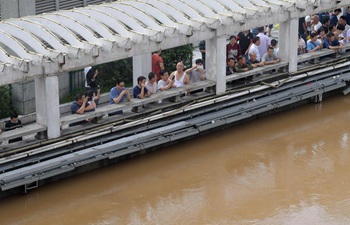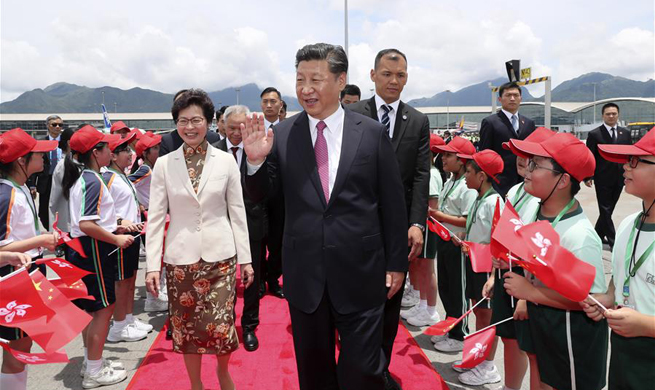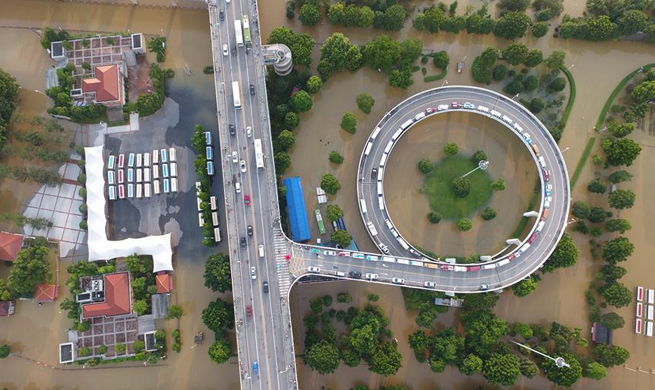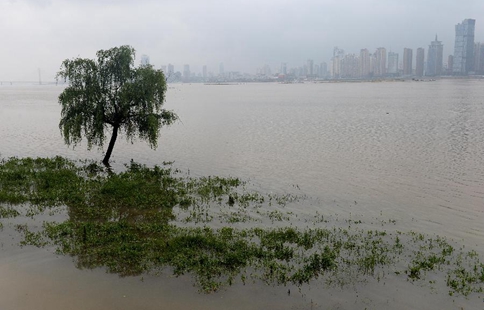SUVA, July 3 (Xinhua) -- About 300 leaders and experts from Pacific Island countries gathered in Suva Monday to discuss enhancing cooperation in the fight against climate change.
The event, organized by Climate Action Pacific Partnership (CAPP), brought together relevant stakeholders to promote the exchange of ideas, innovations and solutions, Fiji Broadcasting Corporation said on its website.
It will seek to produce transformative outcomes and initiatives to boost fight against climate change in the Pacific, and urge more actions and enthusiasm on the fight elsewhere in the world.
The agenda features interactive sessions with contributions from Pacific leaders, civil society and the private sector.
Inia Seruiratu, Fiji's climate champion minister, urged the participants to exchange ideas, innovations and solutions to initiate and accelerate transformative actions that result in credible and sustainable greenhouse gas emissions reductions.
The government of Fiji will be the president of the 23rd Climate Change Conference (COP23) to be held in Bonn, Germany.
Fiji's Prime Minister Voreqe Bainimarama has given high priority to COP23, aiming to continue the momentum for action since the entry into force of the Paris Climate Change Agreement in 2016.
The entire region is highly vulnerable to climate change impacts. The London School of Economics estimated that across the Pacific Islands, home to 10 million people, up to 1.7 million could be displaced due to climate change by 2050.
Fiji, like other Pacific Island states, faces challenges in fully implementing government policies due to limited technical, human resource and financial capacities.
Home to over 870,000 people in the central South Pacific Ocean, Fiji's 300 volcanic islands include low-lying atolls that are highly susceptible to cyclones and floods.
The country is no stranger to the devastation wrought by climate change. Sea flooding is usually associated with the passage of tropical cyclones close to the coast. Heavy swells, generated by deep depressions and/or intense high pressure systems some distance away from Fiji, have also caused flooding to low-lying coastal areas.
According to a World Bank report, climate threats to Fiji's society and economy include higher rates of disease as average temperatures rise; increasingly destructive storms as oceans get warmer and weather patterns become more severe; disruptions to agriculture as the intrusion of saltwater damages existing farmland, among others.
On Fiji's main island of Viti Levu, these factors are expected to contribute to economic damages of up to 25 million U.S. dollars per year, or roughly 4 percent of Fiji's gross domestic product.
















